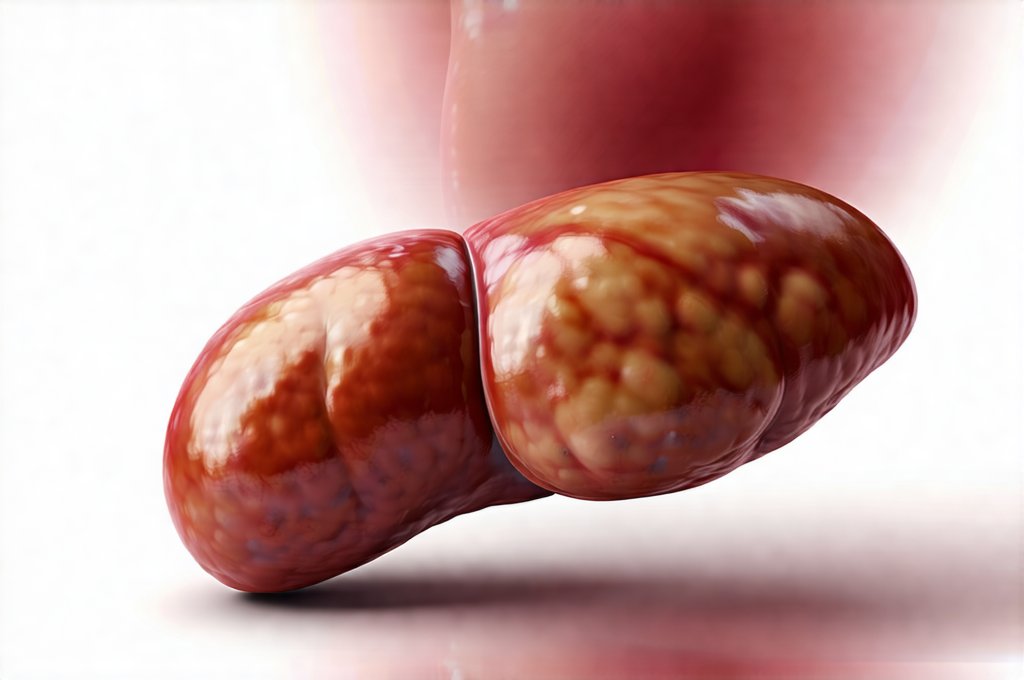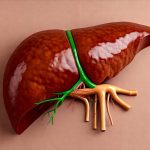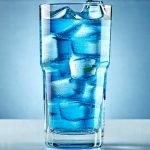Gas and bloating are incredibly common digestive complaints, often dismissed as simply “part of life” or attributed to dietary indiscretions. While this is frequently true – enjoying a bean burrito or overindulging in carbonated beverages can certainly cause temporary discomfort – persistent or severe gas and bloating shouldn’t be ignored. They can signal underlying issues within the digestive system, and increasingly, healthcare practitioners are recognizing the potential connection between these symptoms and imbalances in other vital organs, most notably the liver. The relationship isn’t always straightforward; it’s rarely a case of direct cause-and-effect. Instead, it often involves complex interactions where a compromised liver contributes to impaired digestion, altered gut flora, and ultimately, increased gas and bloating.
The liver is a powerhouse organ responsible for hundreds of functions essential to overall health, extending far beyond simply filtering toxins. It plays a crucial role in digesting fats (through bile production), storing glycogen for energy, regulating blood sugar levels, processing nutrients from food, and even supporting the immune system. When the liver’s function is compromised – whether due to lifestyle factors, genetic predispositions, or underlying medical conditions – it can disrupt these processes, leading to a cascade of effects that manifest as digestive distress, including gas and bloating. Understanding this connection requires looking beyond just the gut and appreciating the interconnectedness of bodily systems. Recognizing potential liver imbalances isn’t about self-diagnosing; it’s about being informed and proactive regarding your health and seeking professional guidance when necessary. recognizing the signs can be a first step toward understanding your body.
The Liver’s Role in Digestion & Gut Health
The link between a healthy liver and a happy digestive system is profoundly important, yet often overlooked. Bile, produced by the liver and stored in the gallbladder, is critical for emulsifying fats – breaking them down into smaller particles that can be easily absorbed by the small intestine. Without sufficient bile production or impaired bile flow, fat digestion becomes inefficient. Undigested fats then travel to the colon where they are fermented by bacteria, producing gas as a byproduct. This explains why fat malabsorption is frequently associated with bloating and flatulence. A sluggish liver can also struggle to effectively process toxins, leading to an increased burden on the gut and potentially disrupting the delicate balance of the microbiome.
Furthermore, the liver’s detoxification processes influence the overall inflammatory state of the body. When the liver isn’t functioning optimally, toxins accumulate, triggering systemic inflammation. Chronic inflammation in the gut can damage the intestinal lining, increasing permeability (often referred to as “leaky gut”) and allowing undigested food particles and bacteria to enter the bloodstream, further exacerbating digestive symptoms like bloating and gas. This creates a vicious cycle where liver dysfunction contributes to gut inflammation, which then worsens liver burden. can reactions be indicative of improvements?
It’s important to remember that the gut microbiome – the trillions of bacteria residing in our intestines – plays a massive role in digestion and overall health. The liver’s ability to process nutrients directly impacts the food available to these beneficial bacteria, influencing their composition and function. An imbalanced gut microbiome (dysbiosis) can contribute significantly to gas production as certain bacterial strains ferment carbohydrates into gases like hydrogen, methane, and carbon dioxide. A compromised liver, by disrupting nutrient processing and increasing inflammation, can inadvertently promote dysbiosis. the role of fodmaps also plays a large part in this process.
Recognizing Signs of Potential Liver Imbalance
Identifying potential liver imbalance isn’t about looking for specific symptoms that exclusively indicate a problem; it’s about recognizing clusters of indicators and considering them within the context of your overall health. Gas and bloating are often just one piece of the puzzle. Other signs may include:
- Fatigue: Persistent tiredness, even after adequate sleep, can be a sign of liver stress as the organ struggles to process toxins and maintain energy levels. can gerd be related to this fatigue?
- Digestive Issues: Beyond gas and bloating, these could include indigestion, constipation, diarrhea, or difficulty digesting fatty foods.
- Skin Problems: Rashes, eczema, acne, or unexplained itching may indicate that the liver isn’t efficiently eliminating toxins.
- Changes in Stool: Pale, clay-colored stools can suggest impaired bile flow.
- Abdominal Discomfort: A feeling of fullness or pressure in the upper right quadrant of the abdomen, where the liver is located.
It’s crucial to emphasize that these symptoms are non-specific and can be caused by a multitude of factors. However, if you experience several of these signs along with persistent gas and bloating, it warrants further investigation. It’s also essential to note that some individuals with liver imbalances may not experience any obvious symptoms initially. This is why regular health checkups and proactive attention to lifestyle choices are so important. liver inflammation can often be silent too.
Lifestyle Factors Affecting Liver Health
Many aspects of modern life can place a significant burden on the liver, contributing to imbalances over time. Dietary habits play a huge role. A diet high in processed foods, sugar, unhealthy fats, and alcohol forces the liver to work overtime processing toxins and metabolic waste. Conversely, a diet rich in whole, unprocessed foods – fruits, vegetables, lean protein, and healthy fats – supports optimal liver function.
Other lifestyle factors include:
– Exposure to Environmental Toxins: Pesticides, herbicides, pollutants, and chemicals found in everyday products can overwhelm the liver’s detoxification capacity.
– Stress: Chronic stress elevates cortisol levels, which can negatively impact liver function and contribute to inflammation.
– Lack of Physical Activity: Regular exercise promotes blood flow and supports detoxification processes.
– Medications: Certain medications can be metabolized by the liver and potentially cause strain if taken long-term or in high doses.
Addressing these lifestyle factors is often the first step towards supporting liver health. Simple changes, such as reducing sugar intake, incorporating more fiber into your diet, managing stress through mindfulness practices, and prioritizing regular exercise, can make a significant difference. Hydration is also key, as water helps flush out toxins and supports optimal liver function.
Supporting Liver Function Naturally
While severe liver conditions require medical intervention, many individuals with mild to moderate imbalances can support their liver health through natural approaches alongside professional guidance. These are not replacements for medical advice but complementary strategies. One effective strategy is incorporating liver-supporting foods into your diet:
- Cruciferous vegetables (broccoli, cauliflower, cabbage) contain compounds that aid detoxification.
- Beets stimulate bile production and support liver cleansing.
- Garlic and onions contain sulfur compounds that assist in detoxification.
- Green leafy vegetables provide essential nutrients for liver health.
Another approach is to consider herbal remedies traditionally used to support liver function, such as milk thistle (silymarin), dandelion root, and turmeric. However, it’s vital to consult with a qualified healthcare practitioner before using any herbal supplements, as they can interact with medications or have contraindications for certain health conditions.
Finally, intermittent fasting may offer benefits for liver health by giving the organ a break from constant processing and allowing it to focus on detoxification. Again, this isn’t appropriate for everyone and should be discussed with your doctor before implementation. Remember that supporting liver health is an ongoing process requiring consistent lifestyle choices and proactive self-care.
Disclaimer: This article provides general information about potential connections between gas/bloating and liver imbalance and is not intended to provide medical advice. It’s essential to consult with a qualified healthcare professional for any health concerns or before making any changes to your diet or treatment plan. acid reflux can also play a role in digestive discomfort.


















